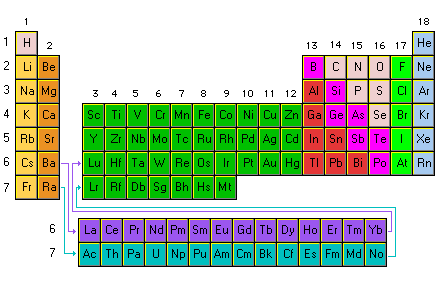 The word biodegradable is a term that is always applied in relation to a chemical substance that breaks down as a result of a natural biological process.
The word biodegradable is a term that is always applied in relation to a chemical substance that breaks down as a result of a natural biological process.
Substance that degrades under the action of a biological agent
In other words, this concept is applied to designate a substance that can degrade from the action of a biological agent, such is the case of animals, bacteria, fungi, among others.
Then, decomposition occurs in the chemical elements that compose it thanks to the action of biological elements such as: plants, fungi, animals or microorganisms.
The biodegradation time of a chemical substance depends on several issues, such as: the equilibrium of the molecule in question, the environment in which they interact and are in a bioavailable situation for the action of the biological elements and the enzymes that hold the chemicals. elements.
It should be noted that the biodegradation of some chemical substances will allow them to be used at the behest of energy production and the creation of other substances such as: amino acids, tissues, organisms.
Classes of biodegradation and the time that the action takes according to the class of the materials
In the case of heavy metals, it will be necessary to carry out a previous treatment so that later, the bacteria can unfold their action at a tolerable speed.
Then, the degradation may be of two types: aerobic, with the intervention of oxygen, or anaerobic, which dispenses with the use of oxygen unlike the previous one.
Next, we will indicate the decomposition time of some substances and materials: iron (from one to several million years), glass bottle (around four thousand years), wool socks (from one to five years), filter cigarette (time ranges from one to two years), orange peel (just six months), paper (two to five months), banana peel (ranges from four to seven months), string (three to fourteen months), a wooden stake (between two and three years) and glasses of insulating terms (from five hundred to one thousand years), among others.
The pollution produced on the planet by non-degradable elements
The biodegradation process is extremely important for the health of our environment since the materials that are not biodegradable are capable of remaining as waste for up to millions of years on our planet and by case generating severe complications in terms of contamination.
As we just mentioned, some elements such as glass bottles, materials made from iron and the famous plastic bags that are delivered in stores and supermarkets when we do the shopping can take a few thousand years to biodegrade.
To take care of the environment in this sense, it is essential that the use of biodegradable products is encouraged and of course that the population is persuaded about not using products that are not, because in this way we will be minimizing the level of toxic waste and therefore taking care of our planet from their disastrous action.
Let's focus on one of the elements that are not biodegradable and that is so present in our daily lives: plastic bags.
The negative environmental impact of plastic bags and the need to eradicate them from everyday use
These bags take a long time to degrade, between 150 and 1,000 years, and are highly polluting and we use them constantly despite this, although in recent years, many countries have campaigned and laws have been created that prohibit their delivery in shops , there is still much to do to eradicate them.
But to tell you that we should not know why: because they are manufactured from a scarce, non-renewable and expensive resource such as oil and also responsible for the emission of gases that generate the famous greenhouse effect.
Its recycling is extremely expensive.
Most of these bags that are printed with toxic inks end up floating in the waters, negatively impacting them, triggering, for example, the death of many aquatic species.
This damage can be reversed because they are easy to replace with cloth bags and shopping carts.




